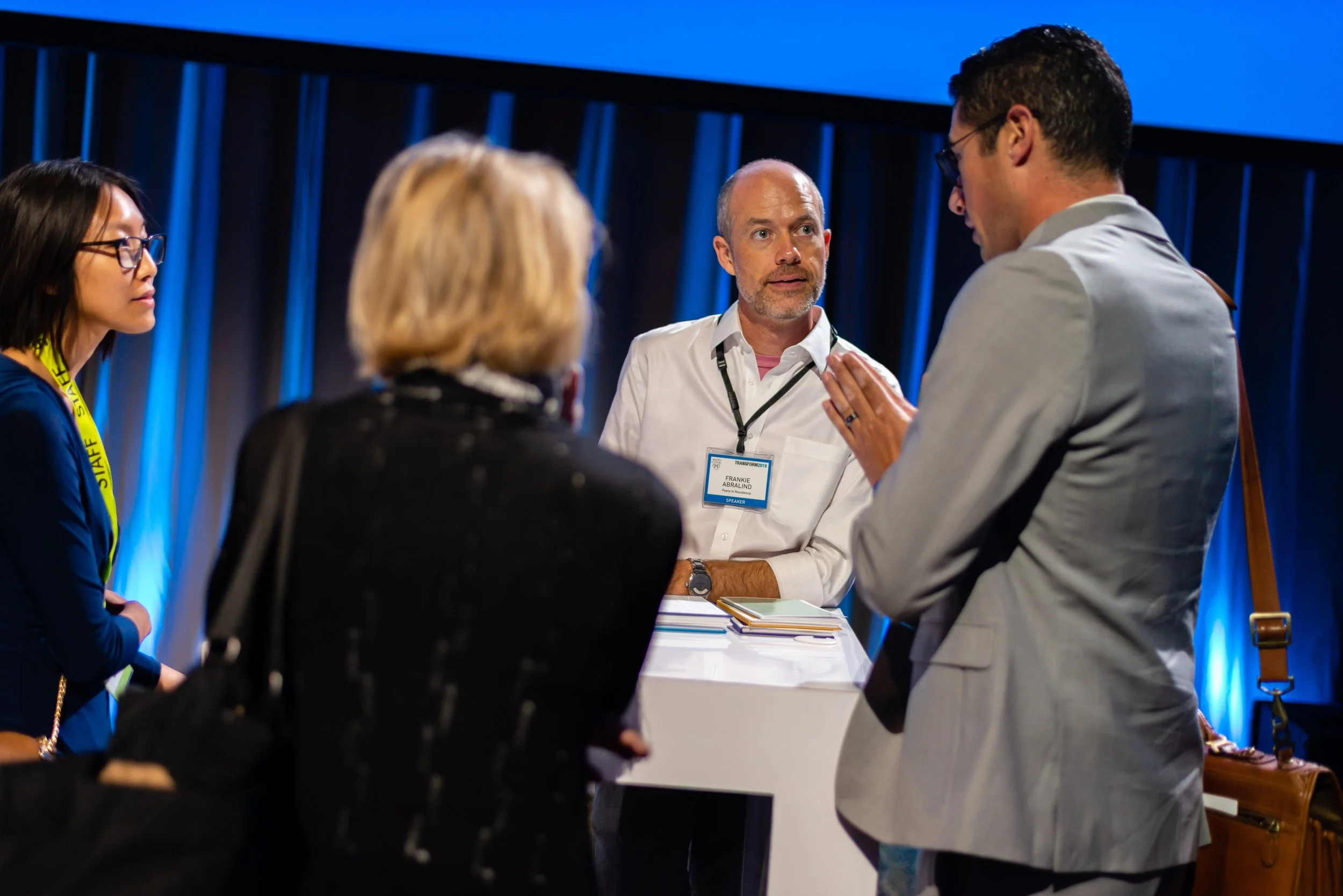We partnered with the Neurology Wellness Committee at CU Anschutz in the summer of 2021 to deliver our newest signature program: Brave Conversations. Here, we share more about the program, along with highlights from our work at CU Anschutz.
What are Brave Conversations?
Brave Conversations are groups of three to four colleagues meeting together for one hour on Zoom, facilitated by two team members from The Good Listening Project. Each participant comes into the conversation having had their own one-on-one Listener Poet session in the weeks beforehand. The custom poems they received from those sessions are used as prompts for connecting with the others.
Our Brave Conversations program is specifically designed to support teams in cultivating connection and humanizing conversations around difficult topics like racism and grief. We use the power of listening and poetry to create safe spaces for people to hear each other’s stories, practice nonjudgmental listening, and reflect on topics that matter.
We draw on poetry to help hold big emotions, and we draw on listening to help humanize difficult conversations and support cultures where people care about each other’s well being.
As one participant put it:
“Being able to share with others and be vulnerable is what humanizes us.”
Why did the Neurology Wellness Committee hire us?
The Committee had three domains of focus: workload, mental health, and mentorship. They hired us to offer our Brave Conversations program as part of the mental health and mentorship resources available within the department. In doing so, they wanted to reinforce the importance of personal relationships and encourage openness as part of the solution to individual and group wellbeing.
How was the program implemented?
Over the course of four months, thirty-one members of the department participated in the program. This included professional research assistants, advanced practice providers, administrative staff, associate professors, assistant professors, and professors.
Each participant first scheduled their one-on-one Listener Poet session, and received a custom poem inspired by their sharing. Next, our Listener Poets facilitated one-hour conversations with 4-5 members of the department via Zoom.
Each group intentionally included a mix of staff across different roles, weaving deeper connections and understanding among people who didn’t typically work together or may never have met before, despite working in the same department.
During these conversations, participants shared their custom poems with one another and reflected on the common themes across their poems. In doing so, they were able to learn more about each other’s stories, beyond what is typically shared in a work context, in a very short amount of time.
What themes surfaced in these poems and conversations?
The following were common themes found in the poems written:
1
Connection and relationships
2
Grief and coping with challenge
3
Discrimination, racism, and misogyny in medicine
4
Vulnerability and humility
Two clear themes surfaced from the Brave Conversations
1. The Rejuvenating Power of Connection & Reflection
Participants’ reflections during and after these Brave Conversations often focused on the value of creating the space and time to share with each other in a meaningful way.
One participant noted that the most valuable part of the experience was “getting to interact with others at different levels in the department and hear everyone's stories. I think it was great to see colleagues in a more personal, human way which helps everyone be more empathetic towards others.” Another shared they were leaving the conversation “feeling more connected to colleagues and with appreciation for others’ challenges and journeys.”
Another participant shared that every time he speaks with his Latina colleague now (since having this shared experience), he speaks in terms of the poem and is able to connect with her because the poem helped him understand her experience in a deeper way. He said:
“It’s a kind of code she shared, but other colleagues maybe are not aware.”
2. The Cascading Benefits of Nonjudgmental Listening
As part of the group conversations, participants reflected on their experiences of being listened to by our Listener Poets. Many noted that being listened to in this way reminded them of the importance of staying present with others and helped them be a better listener for others. One participant shared that “this is helping us learn how to create more space in our patient encounters.” Another shared that:
“It reminded me of the importance of giving my undivided attention to patients and others.”
There was also a recognition that “listening is difficult–nonjudgmental and intentional listening is something we have to practice.” Another person shared “we’re so trained to analyze and criticize, but this helped me remember the power of listening without an agenda and from the heart.” Some participants also acknowledged it was uncomfortable at first, being heard, because they were used to being the ones listening to others. Several groups discussed how being heard is a universal human need, and named the importance of spaces for those working in healthcare to be heard as well.
What were the outcomes?
In an anonymous follow-up survey, 91% of respondents indicated their experience contributed to four or more specific wellness outcomes. On average, each respondent chose six of nine potential outcomes. The most common outcomes chosen were:
having humanizing conversations with colleagues,
connecting with/ meeting new colleagues from different roles,
feeling heard, and
reflecting on topics that matter.
In addition to linking their experience with TGLP to wellness indicators in the workplace, we know the benefits have wider ripples. As one participant put it:
“Support in the workplace can be so monumental to balancing and supporting personal life as well.”
Interested in exploring Brave Conversations for your organization?
We’d love to explore how this program could support your organization’s wellness and DEI goals! Connect with us HERE.



